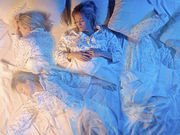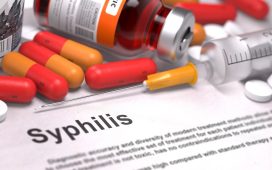Poor sleep in preceding stage of menopause does not predict poor sleep in later stages
WEDNESDAY, March 7, 2018 (HealthDay News) — Consistent risk factors for poor sleep in menopause include depression and vasomotor symptoms, according to a study published online Feb. 9 in Sleep Medicine.
Rebecca L. Smith, Ph.D., from the University of Illinois in Urbana, and colleagues surveyed participants of the Midlife Women’s Health Study to describe the dynamics of poor sleep and to identify risk factors associated with poor sleep during menopause. Survey responses were analyzed to determine the likelihood of persistent poor sleep throughout menopause. Risk factors for poor sleep were also identified from responses to questions about a large number of potential risk factors.
The researchers found that poor sleep in premenopause did not predict poor sleep in perimenopause, and similarly, poor sleep in perimenopause did not predict poor sleep in postmenopause. There was a high correlation between the frequencies of each of the measures of poor sleep. High frequency of depression was related to a high frequency of poor sleep for all sleep outcomes. Higher frequencies of insomnia and sleep disturbances were also associated with a history of smoking.
“The risk factors identified for poor sleep, depression, and vasomotor symptoms, were consistently associated with poor sleep throughout the menopausal transition,” the authors write.
Copyright © 2018 HealthDay. All rights reserved.








